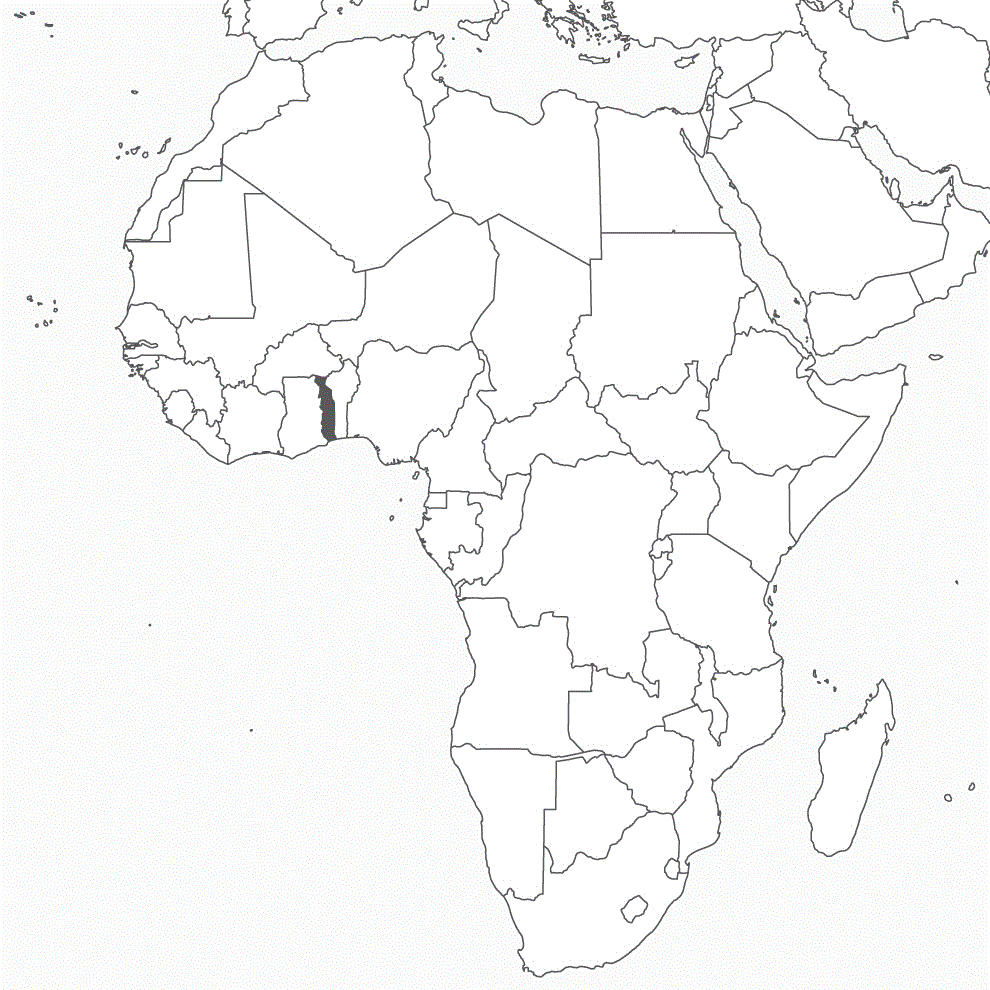The Struggle for Hegemony in Africa
BERLIN/LOMÉ (Own report) A transitional government, made up of all political forces, should take power in the West African nation of Togo. This demand was raised, in contradiction to the recommendations of ECOWAS (Economic Community Of West African States), by Kerstin Mueller (The Greens), state secretary of the Federal Foreign Ministry. The hegemony over Togo, a former German and later French colony has been the object of an intense, century-long dispute between the former colonial powers, leading repeatedly to violent conflicts. The recently deceased president Gnassingbé Eyadema was considered France's friend. In the ensuing power struggles, Berlin is backing the country's opposition. The German-French competition is based on geostratigic interests.
Following the death of President Gnassingbé Eyadema, who had ruled the country as a dictator, and was considered by Jacques Chirac as ,,France's friend,"his son, Faure Gnassingbé putsched himself into power. Under pressure of ECOWAS, of which Togo is a member, Faure Gnassingbé was forced to resign on February 27, 2005. The Vice-President of the Parliament, a member of the the Eyadema-Party, ,,Rassemblement du Peuple Togolais"(RPT) is now running the government. Following the annulment of the putsch, ECOWAS lifted the short-term sanctions and demanded that orderly presidential elections be held, which will take place in April. This does not go far enough for the German Foreign Ministry, who demands the immediate investiture of ,,a transitional government (...) representing all political forces of the country." 1)This demand is aimed at the German-friendly preferences among the Togolese opposition.
German Protection
The present German standpoint revives the struggle for hegemony that Germany and France have been engaged in for more than a century in this West African country. ,,The history of Togo, as a geographical and political entity, begins with the establishment, under this name, of the German protectorate (Treaty on the Protectorate, July 5, 1884)", writes the German Foreign Ministry, employing the same colonial terminology that had been used to embellish occupation and enslavement to appear as an act of humanism. 2)Following World War I the German Reich lost the colony to France, which granted formal independence in April 1960. This led to a new escalation in the dispute for hegemony over the country between these European powers. Sylvanus Olympio, Togo's first president was known as pro-German and had demonstratively invited Duke Adolph Friedrich zu Mecklenburg, the last German governor of the country, to attend the Independence celebrations in April 1960. 3)When Olympio planned to replace the Togolese currency - the CFA-Franc - with a new currency oriented on the Deutschmark, he was assassinated. The later Togolese president, Gnassingbé Eyadema, a former officer of the French Foreign Legion, admitted having committed the murder. This temporarily decided the struggle for influence in favor of the French speaking vassals.
Special Relationship
Even though the Federal Republic of Germany furnished extensive development aid during the cold war, it had not been successful in replacing French predominance in Lomé. ,,Of all the European states, Togo maintains traditionally close ties to its former mandate ruler, France", one can hear in the German Foreign Ministry. 4)But the Foreign Ministry has not conceded and has allowed the federal state, Bavaria, to take up operations in Togo. In March 1977, the Bavarian premier ordered the establishment of the Institute for Political Science and Adult Education in Lomé. In addition, Munich financed until 1995 the operations of the administration school ENA, which trained Togolese officials and copied the corresponding French elite state institutions. The concentration of Bavarian foundations operating in Lomé is unusually high: Hanns-Seidel-Foundation, Alfons-Goppel-Foundation, Bavarian-Togolese Society.
Strained
In the past few years, the German government has on various occasions intervened to the advantage of the opposition. In April 2002, the then residing state's minister in the German Foreign Ministry, Ludger Volmer (The Greens), received the Togolese opposition politician, Yawovi Agboyibo, who had recently been released from prison due to German pressure. Volmer declared at the time ,,the Federal Government views the new democratic initiatives on the African continent with sympathy." 5)The Foreign Ministry is even more explicit with its diplomatic advances in favor of the Togolese opposition, disguised as remarks with which it takes a distance to the government of the country. In the Foreign Ministry, one learns that Berlin considers ,,the relations to the Togolese Government as strained"because of the negative results in ,,questions of human rights"and the ,,democratization process". 6)At the moment the most prominent opposition politician is Gilchrist Olympio, a son of the pro-German president Sylvanus Olympio, assassinated in 1963.
Tactical
The tactical nature of the German ,,human rights"activities is demonstrated by the collective deportation of Togolese refugees, that the Federal government ordered after the signing of an accord between the EU and the government in Lomé in April 2004. In spite of interventions by human rights organizations, Berlin annulled residence permits of exiled members of the Togolese opposition and deported them to Lomé. According to refugee organizations, at least five of them are since reported as missing. 7)
1) Staatsministerin Kerstin Müller zur Lage in Togo; Pressemitteilung des Auswärtigen Amts 01.03.2005
2) Togo. Jüngere Geschichte; Länder- und Reiseinformationen des Auswärtigen Amts
3) Eine schwarze Männerfreundschaft; taz 07.02.2005
4) Außenpolitik; Länder- und Reiseinformationen des Auswärtigen Amts
5) Staatsminister Volmer empfing togoischen Oppositionsführer Agboyibo; Pressemitteilung des Auswärtigen Amts 17.04.2002
6) Beziehungen zwischen Togo und Deutschland; Länder- und Reiseinformationen des Auswärtigen Amts
7) Abschiebung der Familie Tossa/Togo; Pressemitteilung der Flüchtlingsbeauftragten der nordelbischen evangelisch-lutherischen Kirche 25.01.2004. Eine schwarze Männerfreundschaft; taz 07.02.2005
